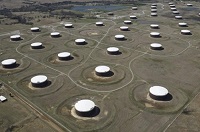Polymers Petrochemicals Crude Oil 18-04-2019 - Arhive
- China – Polyethylene Terephthalate
- PET and its chain are very weak.
- Crude oil is always in good health.
- Polyamide 6 is weak, while its chain is steady.
PET Bottle grade export 1,060/1,100 $/ton – PET Bottle grade domestic market 8,450/8,550 yuan/ton – PET Filament grade SD domestic market 7,800/7,900 yuan/ton – PET Filament grade BR domestic market 7,800/7,950 yuan/ton
- PTA Taiwan 845/855 $/ton – PTA domestic market 6,450/6,550 yuan/ton – MEG 585/595 $/ton – MEG domestic market 4,550/4,650 yuan/ton – PX Korea 980/995 $/ton
- Polyester POY 150D/48F domestic market 9,100/9,200 yuan/ton – Polyester DTY 150D/48F domestic market 10,550/10,700 yuan/ton – Polyester Staple PSF domestic market 8,900/9,000 yuan/ton
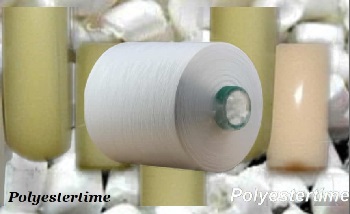
MEGlobal, the world leader in the production of monoethylene glycol (MEG) and diethylene glycol (DG), nominated the MEG May contract price for Asia at USD800 per ton, which is USD40 per ton below April, an ICIS source said the company. The price was named on CFR Asia delivery terms.
MEG prices in Asia show a downward trend as material stocks in main ports of China rose to a record high, although demand in the downstream market for polyester production remains at a good level.
Earlier it was noted that MEGlobal raised the April contract price of MEG for Asia compared to March level by USD10 per ton – to USD840 per ton, CFR Asia.
MEG, along with terephthalic acid (TPA), is one of the main raw materials for the production of polyethylene terephthalate (PET).
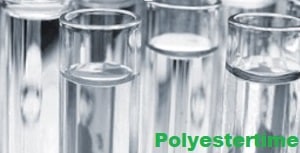
Crude Oil Prices Trend

Global chemical company Eastman has unveiled a recycling process that breaks down polymers into gases for use in chemical manufacturing. It’s now looking for suppliers.
The Kingsport, Tenn.-headquartered company earlier this month announced what it calls carbon renewal technology, through which mixed plastics are deconstructed into hydrogen and carbon monoxide molecules. Eastman then feeds the gases into its existing large-scale system for producing chemicals used in a variety of products.
“The world has a waste plastic problem today, and this is something that can start contributing to fixing that,” said Ron Sheppard, director of corporate innovation at Eastman.

According to ACEA (European automobile manufacturers association), the sales figure for March 2019 for the European passenger car market saw a 3.9 percent decline on a YoY basis. Although a few EU markets showed signs of slight recovery in the month of February, the month of March turned out to be dismal with Italy posting the highest percentage drop (-9.6%), followed by Spain (-4.3%), the United Kingdom (-3.4%), France (-2.3%) and Germany (-0.5%).
As per the reports, almost every country in the continent have seen decline in sales, except for Lithuania (43%), Latvia (15.4%), Romania (20.8%), Hungary (5.0%), Luxembourg (4.5%), Slovakia (7.9%) and Denmark (33.2%). Going by the first quarter of 2019, Lithuania saw a gain of 58.2 percent, followed by Romania (25.1%) and Denmark (16.4%).

The US-based bank, Morgan Stanley, has announced plans to prevent, reduce, and remove 50mn tons of plastic waste from rivers, ocean, landscapes, and landfills by 2030.
The company’s Morgan Stanley Institute for Sustainable Investing revealed the Morgan Stanley Plastic Waste Resolution.
The initiative aims to engage stakeholders to collaborate in designing, innovating, financing, and deploying solutions to plastic waste.
“At Morgan Stanley, we are committed to leveraging our best thinking; our broad capital markets reach; our relationships with innovators, entrepreneurs, corporations and governments; and our ongoing commitment to our communities to address this daunting challenge at a systemic level,” said Tom Nides, Vice Chairman of Morgan Stanley.
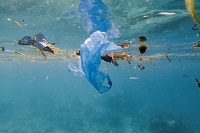
China’s economy is entering a new phase of steady rather than rapid expansion and the automotive industry may have to accept that the days of exponential growth could be at an end, delegates were told at today’s Automotive Logistics Global Shanghai conference.
Yet GDP remains relatively high – predicted to reach up to 6.4% in Q1 2019 – and speakers felt there were several reasons for the automotive industry to remain positive, including opportunities in new energy vehicles (NEVs), the used car sector, and an impending transformation from straightforward manufacturing to a service model.
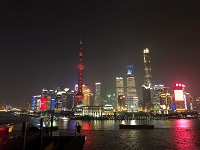
YERUSHALAYIM –
Israel is among the leading countries in recycling bottles, both plastic and glass. There are over 23,000 bottle recycling bins spread throughout the country, with 600 new ones added in 2018 alone. Out of a total of 990 million bottles that were sold in 2018, some 770 million were recycled – nearly 80% of the total. The Environment Ministry, which issued a report on the matter, said that recycling efforts had more than met the goals set out at the beginning of the year.
Israel leads recycling efforts in plastic bottles in both the United States and Europe. Israelis recycled 59.9% of PET (polyethylene terephthalate)-based plastic bottles in 2017, while the recycling rate in the U.S. was 29.6%.
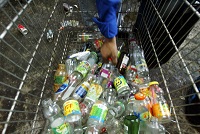
Hellmann’s announced Tuesday that by 2020, all of its mayonnaise and mayonnaise dressing plastic containers sold in U.S. retail stores will be made from recycled plastic materials. This initiative is part of Hellmann’s ongoing commitment to advance sustainable packaging.
The recycled plastic packaging is rolling out now, beginning with Hellmann’s Mayonnaise and Mayonnaise Dressing squeeze bottles and followed by Hellmann’s jars by the end of 2019. Over 200 million Hellmann’s bottles and jars will be impacted, and the new containers will feature the How2Recycle label and artwork that highlights the brand’s commitment to using recycled plastic.
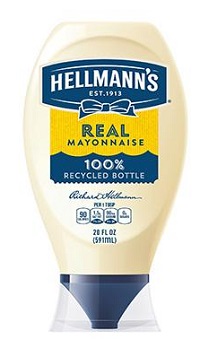
High performance Mobil DTE 10 Excel™ hydraulic fluid helps cut energy consumption and increase productivity
A team of field engineers helped MPact Polymers reduce the energy used by processing equipment at its Pinetown site by 7%1 by switching to Mobil DTE™ 10 Excel hydraulic fluid. The move also helped optimise equipment performance, which reduced unscheduled maintenance, while the hydraulic fluid’s long life cut waste oil disposal costs.
The South African plastics packaging manufacturer was looking for ways to improve the efficiency of its plastics processing equipment. Following a site inspection, ExxonMobil’s Field Engineering Services (FES) team recommended switching the company’s 22 injection moulding machines and 13 blow moulding lines to Mobil DTE 10 Excel 46 hydraulic fluid.
ExxonMobil also recommended that MPact Polymers implement Mobil Serv℠ Lubricant Analysis. The used oil analysis programme can detect issues before they become problems, helping reduce unplanned maintenance.
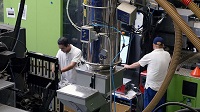
A one-step method enables scalable and more environmentally friendly production of plant-derived plastic monomers, paving the way towards the mass production of a sustainable alternative to petroleum-based materials.
An international team, including Kiyotaka Nakajima of Hokkaido University, Japan, and Emiel Hensen of Eindhoven University of Technology, the Netherlands, has developed an energy-efficient method to synthesize bioplastic ingredients. The new technology will contribute towards the realization of sustainable ‘green products’, such as completely biobased beverage bottles. This study was conducted jointly with Mitsubishi Chemical Corporation and the findings were published in ACS Catalysis.
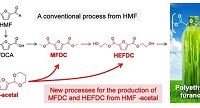
France will ban the use of titanium dioxide as a food additive from 2020 after the country’s health and safety agency said there was not enough evidence to guarantee the safety of the substance.
Titanium dioxide is widely used in industry as a whitener, notably for paint, and in the food sector, where it is labeled E171 and goes into products from chocolate to chewing gum.
France had ordered a review of the substance in 2017 after a study found health effects in animals that consumed it.
France’s National Institute for Agricultural Research (INRA) and partners in a study of oral exposure to titanium dioxide had shown that E171 crosses the intestine wall in animals to reach other parts of the body.
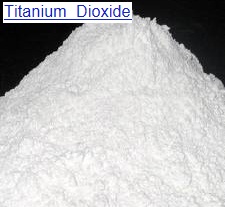
- Growing automotive industry in developed and developing countries is expected to drive the polyamide
Polyamide Market : Overview
Polyamide is a polymer with versatile properties and high demand in various end user segments such as automotives, textile, electronics, machinery, packaging and coatings among others. Polyamides occur naturally in form of wool, silk among others and can be synthesized artificially. Nylon, polyamide 6 and aramid are amongst artificially made polyamides. Artificial polyamides exhibit properties such as resistance to wear, good mechanical properties, low permeability to gases and chemical resistance. Bio-based polyamides are gaining demand in market owing to its eco- friendly nature. Polyamide 6 is dominant type among polyamides in terms of revenue and consumption owing to its cost to performance factor.
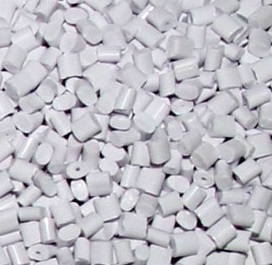
A new recycling line will help produce food-contact RPET from just about the dirtiest source around: bottles picked from landfills.
Equipment supplier Amut has provided a wash line for a new recycling plant at an Indorama Ventures North America facility in Guadalajara, Mexico. The bottles, sourced from landfills, will be the dirtiest bottles on the market.
Indorama Ventures is one of the world’s largest virgin plastics producers. It and other global plastics producers have responded to customer pressure to offer more recycled plastics by investing in the recycling industry. Earlier this year, Indorama acquired the Custom Polymers PET recycling plant in Athens, Ala. The company has also partnered with technology startups, among them Loop Industries, a Canadian company commercializing a PET depolymerization technology.
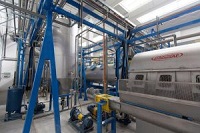
The leader of one of the world’s largest bottle water businesses recently detailed the company’s recycling strategy, noting it supports deposit legislation and other steps to boost supply.
Nestlé Waters North America began moving into a role supportive to recycling back in 2011, and it has since pushed deeper by both increasing the amount of recycled plastic used in its packaging and increasing the recyclability of its products.
Ultimately, the company anticipates getting to the point where all of its plastic packaging, and that of other companies, is recovered for recycling or reuse. Technological advancements have enabled that step, said Fernando Mercé, CEO of Nestlé Waters North America.
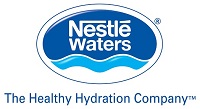
U.S. crude oil stockpiles fell unexpectedly last week as imports dropped, while gasoline and distillate inventories decreased less than forecasts, the Energy Information Administration said on Wednesday.
Crude inventories fell by 1.4 million barrels in week to April 12, compared with analysts’ expectations for an increase of 1.7 million barrels. A majority of the decline came from the Midwest region, where inventories fell 2.4 million barrels to 135.3 million barrels.
